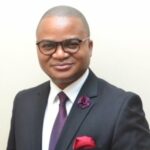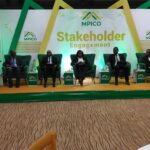Economic conference for more recovery measures
Published on November 5, 2012 at 2:42 PM by FACE OF MALAWI
Participants at the Multi-Stakeholders Economic Conference on inclusive growth in Malawi held in Lilongwe on Friday and Saturday have called for a broad national commitment to reforms aimed at speeding up the recovery of the Malawian economy.
They have also called for the strengthening social protection programmes while laying the foundations for sustained strong and inclusive growth.
The conference, which was jointly organised by the International Monetary Fund (IMF), the Ministry of Finance and the Reserve Bank of Malawi, was officially opened by President Joyce Banda and attended by IMF Deputy Director for the African Department David Owen and other top dignitaries.
According to a statement issued at the end of the conference, participants agreed that the Economic Recovery Plan being implemented by the Malawi government should be made more result oriented by including quantified output targets in all priority sectors and time lines for their achievement.
“The priority sectors should be expanded to include the manufacturing sector which is important for both growth and employment creation,” reads the statement.
It said effective dialogue on a regular basis would also be critical between government and key stakeholders in fostering ownership and sustaining support for the government’s reform efforts.
At the conference, there was broad support for the bold measures taken by the new government in May to restore macroeconomic stability.
It was acknowledged that the new administration inherited an economy in crisis as evidenced by acute foreign exchange shortage and declining output and exports.
The conference, however, emphasised the need for macroeconomic stability although that alone would not be sufficient for a sustained recovery and promoting broad based and inclusive growth.
According to the statement, the conference recommended that in order to improve Malawi’s international competitiveness and achieve sustained growth, priority should be given to removing regulatory hurdles to opening or expanding businesses.
It said government expenditures should be prioritised to provide adequate social protection and investment in human capital and physical infrastructure.
Expanding access to financial services is critical for achieving inclusive growth, reads the statement from the conference.
It was observed that high levels of growth achieved between 2005 and 2010 had little impact on the overall poverty rate in the country.
“Although poverty has fallen significantly in urban areas, it has risen in the rural areas where most of the population lives,” observed the participants.
The high level conference was held under the theme “Toward More Inclusive Growth.”
In her address, President Banda challenged participants to review critically the ERP implementation strategy and come up with concrete recommendations for strengthening Malawi’s international competitiveness and attracting investments that would promote broad based growth that will significantly reduce poverty in the country.
Finance Minister Ken Lipenga said at the end of the conference that there was very constructive discussions on the challenges facing Malawi’s economy and the road ahead.
“We are committed to reforms that will put Malawi on the path of high, sustainable and inclusive growth. Strong and inclusive growth is critical for economic development and social cohesion” said Lipenga.
On his part, IMF’s David Owen said the conference provided a valuable opportunity for the fund to listen to wide ranging views of key national stakeholders.
“There was candid dialogue on policies and measures needed to respond to immediate challenges and to meet Malawi’s medium and long term development goals,” said Owen.


